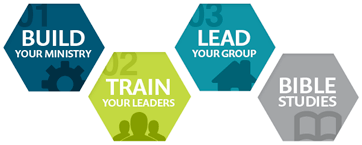Overview
Christians will readily assert that we are people of the Bible—that God's Word gives us our perspective, worldview, and marching orders about life. We will vigorously defend the historicity, perspicuity, and relevance of Scripture, calling our friends and neighbors to come under its authority. We'll hold Bible studies (like this one), read and write books about the Bible, and write checks to get God's Word into the hands of people around the world who do not yet own a copy.
And yet, when push comes to shove, according to pastor and author Eric J. Bargerhuff, too often we treat the Bible as a magic book focused solely on our own wants and needs, so that, as Christianity Today summarizes: "the Bible becomes a mere handbook, and its verses a talisman." We need, Bargerhuff says, to put God and his glory first in order to properly use the Bible.
Table of Contents
SCRIPTURE: Matthew 6:9–13; Romans 8:18–27; Hebrews 4:1–13; James 4:4–10
LEADER'S GUIDE
• Identify the Current Issue
• Discover the Eternal Principles
—Teaching point one: If we want to understand Scripture, we must submit ourselves to God.
—Teaching point two:A right interpretation of Scripture shows us who we are.
—Teaching point three:A correct understanding of Scripture informs our prayers.
—Teaching point four:We must put God's interests above our own in Scripture interpretation and prayer.
• Apply Your Findings
• Additional Resources
ARTICLE FROM CHRISTIANITY TODAY
• "God Is Not a Genie in a Bottle," interview by Owen Strachan, April 2012
Total number of pages—





